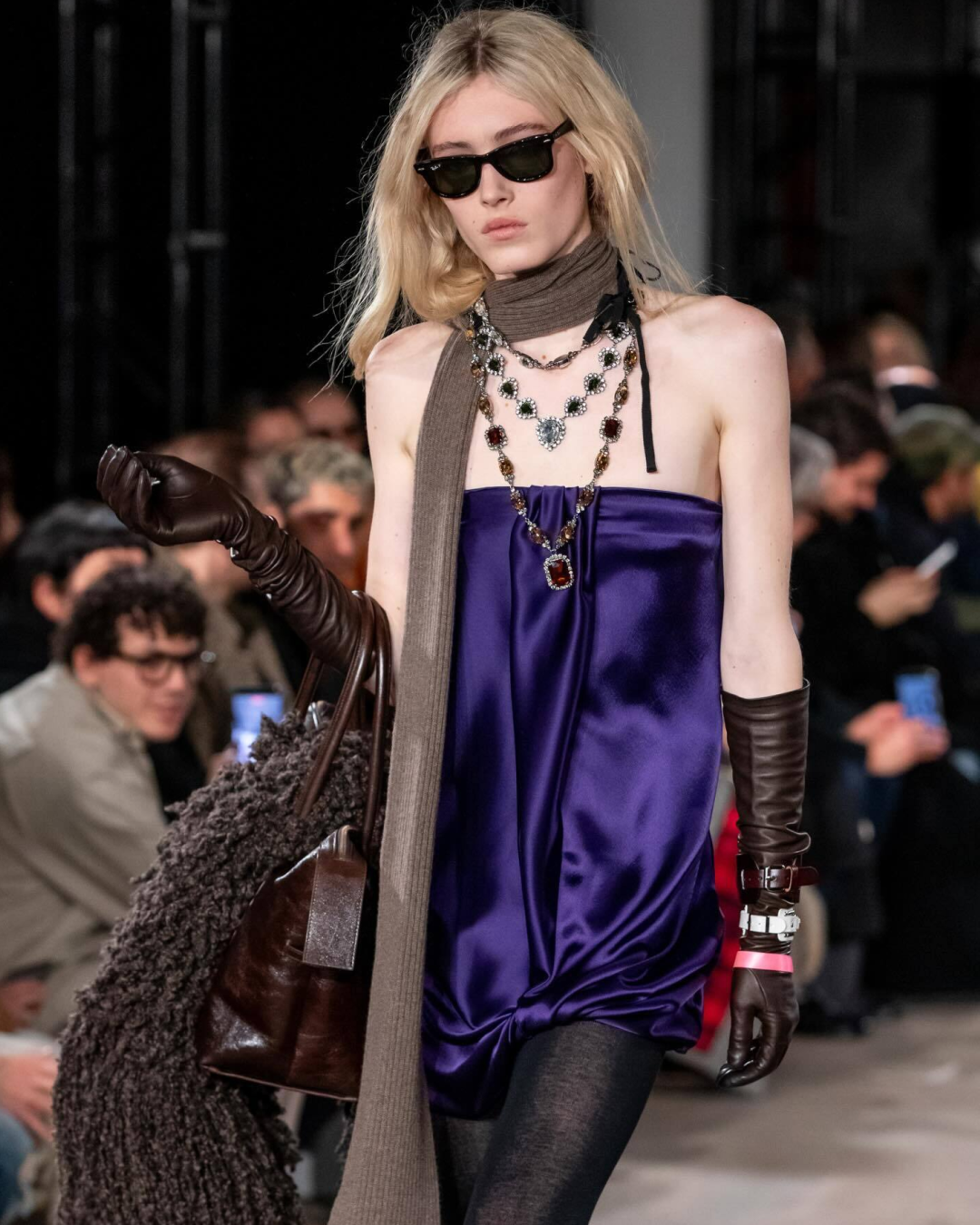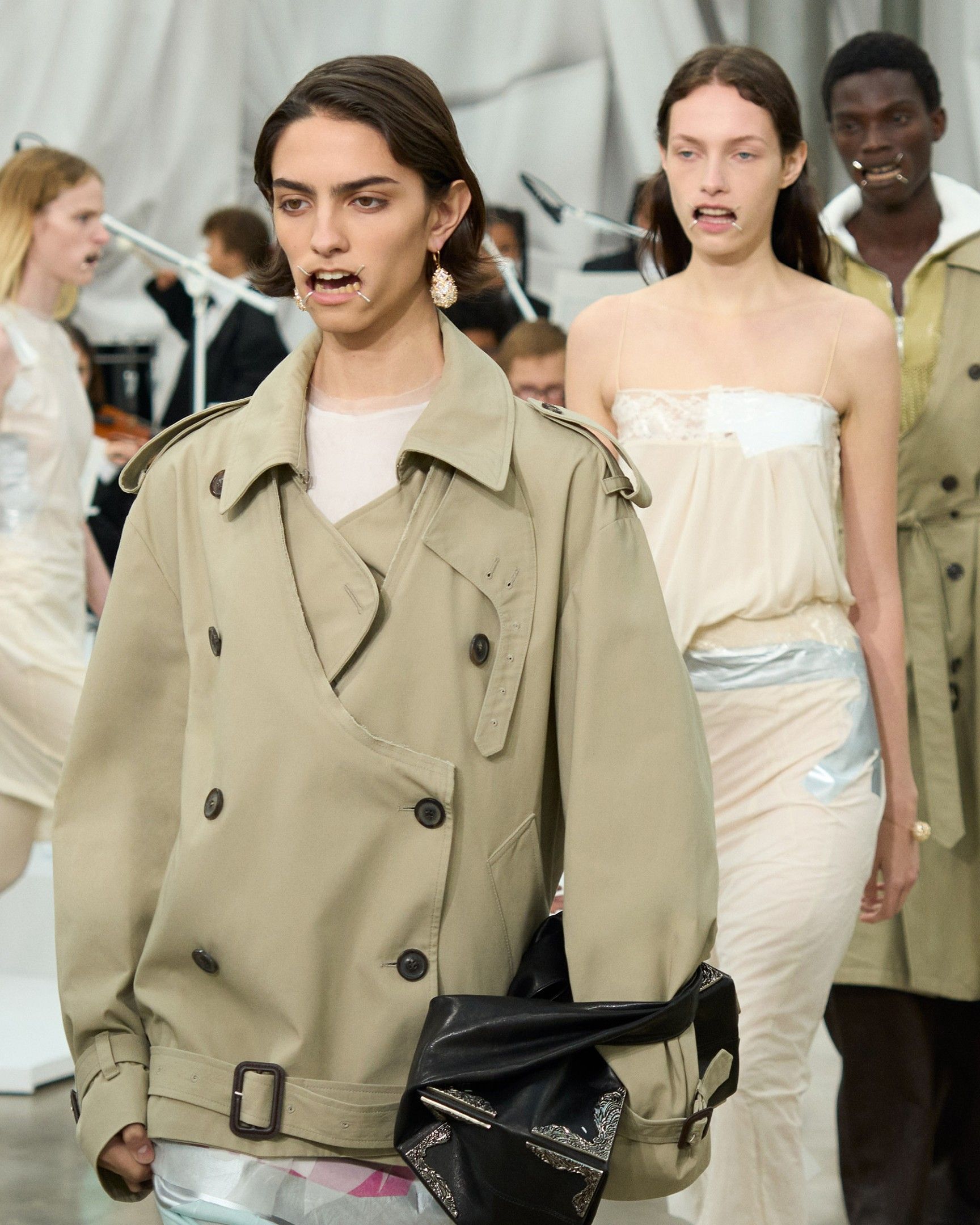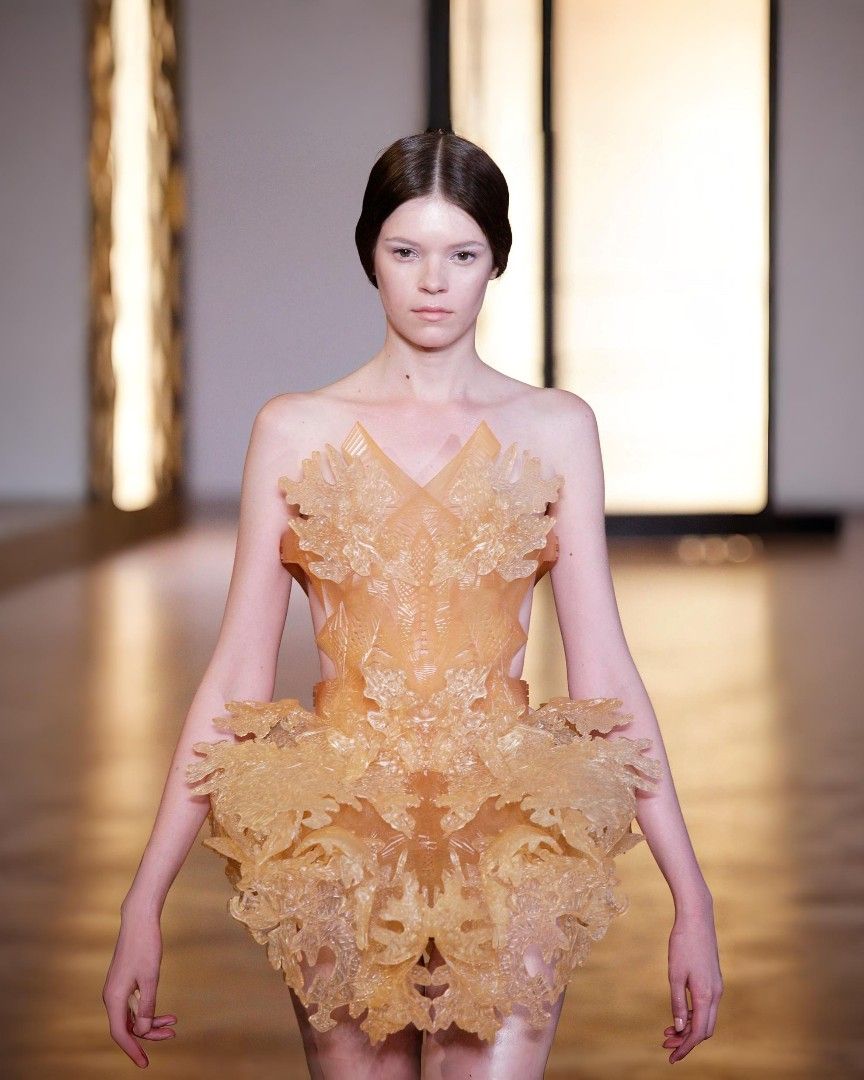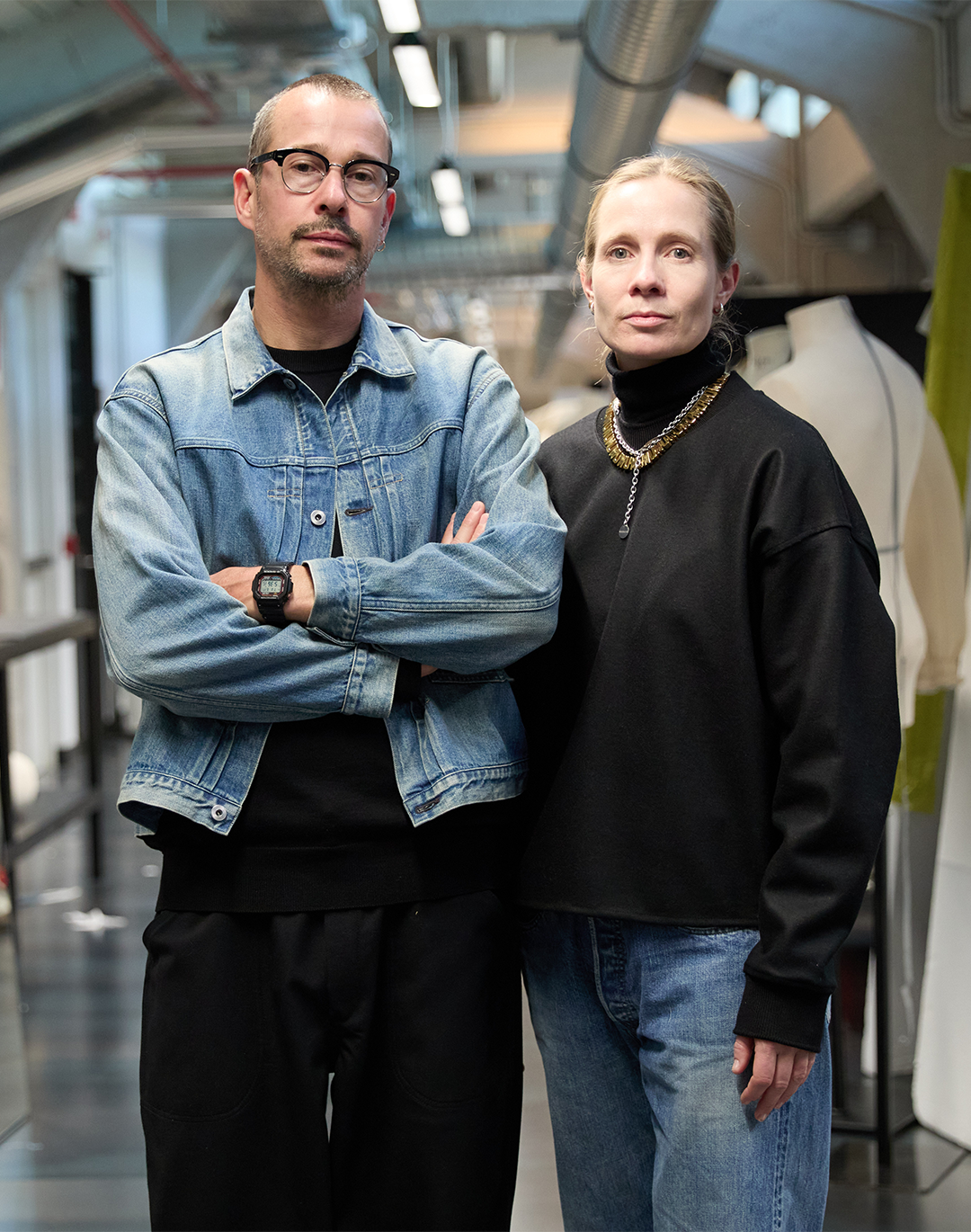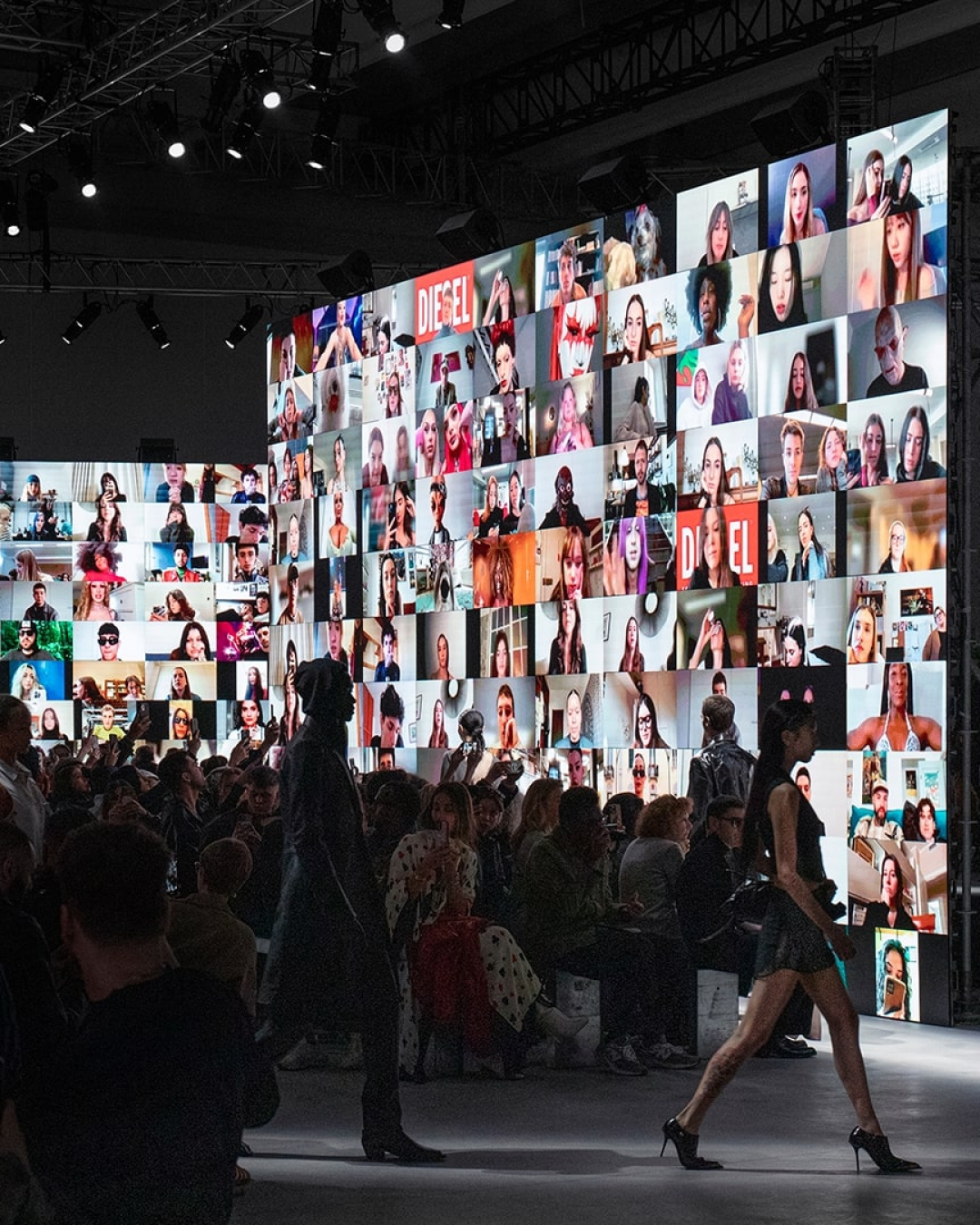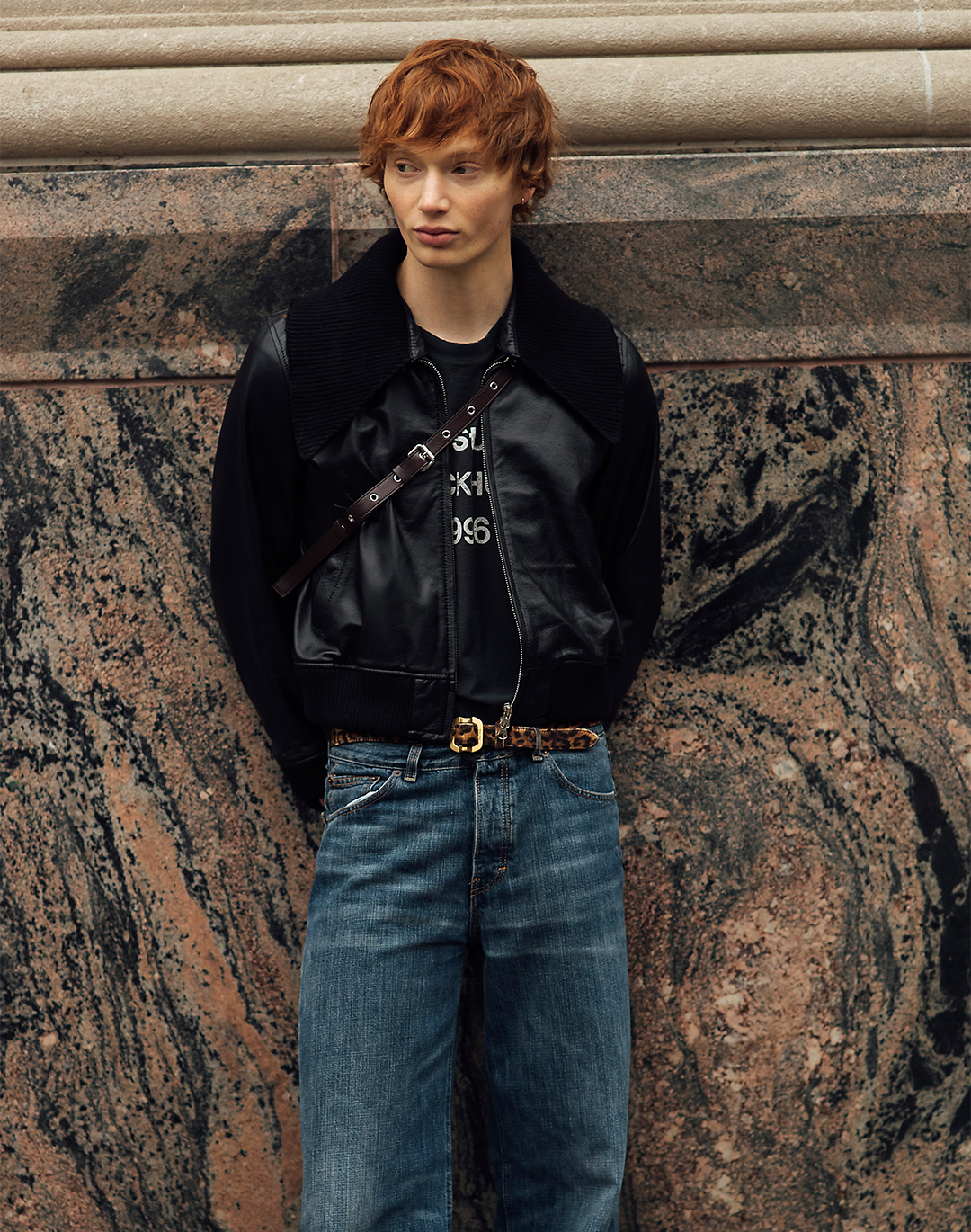
The time has come for NPCs From fashion to social, what are "non-playable characters"
In video games, NPCs are the "non-playable characters," characters who are not playable and are programmed to perform a series of repetitive actions. Although it is an obscure term, known perhaps to those who have spent afternoons playing Grand Theft Auto or Skyrim, it has found unexpected popularity in recent weeks due mainly to TikTok and its algorithm. Right there, between a video of a dog stuck in a fence and a tutorial for an air fryer recipe, Canadian creator PinkyDoll turned the NPC concept into a reason for financial success. «I remember someone said to me, 'Oh my God, you look like an NPC.' And then they started sending me crazy amounts of money,» PinkyDoll - born Fedha Sinon - told the New York Times, referring to the hundreds of donations she gets during each live show. The way it works is simple: in her live broadcasts, viewers send Sinon digital gifts that the platform converts into money in exchange for which the creator responds by repeating a phrase or gesture requested by one of the viewers. And while one of her most famous phrases - "Ice cream so good" - has also become a meme starring Joe Biden and Sinon earns between $2,000 and $3,000 per live broadcast, some online have begun to argue that PinkyDoll's success can be traced to the fetish matrix of her content.
As Madison Malone Kircher wrote, «there is something sexual about being able to control her every word and gesture by sending her this or that gift.» PinkyDoll is not an isolated case, however, although it remains the most successful one with over 655 thousand followers gained in a very short time. Other creators such as Cherry Crush with over a million subscribers on Youtube and Satoyu727 with two million TikTok followers are proof of the scope of a definition, that of NPC, which had found a place in ByteDance's app algorithm for quite some time. "Dressing like an NPC" reads the title of several TikTok videos in which the protagonists dress purposefully anonymously, with no logos other than those of low-end brands or wrong fits. In the app's fashion bubble, the term has taken on a negative meaning, used to refer to those who dress without personality, sometimes as a pretext for creating viral content or belittling that of others. According to Youtuber Frugal Aesthetic a "fashion NPC" is primarily «someone who has no interest in fashion,» a definition that evolved when «something that was once exclusive became available to everyone.» A concept that in his video is applied to Fear of God's Essential hoodies, but in the latest period we could relate to New Balance 550s, as well as adidas Samba or Dunk Panda. Items and trends within the Diffusion of Innovation Theory, the theory used to describe how ideas and trends gradually spread among consumers would be placed in the Late Majority and Laggards categories, the last two within the consumer curve.
But if the term NPC has now taken on a uniquely negative meaning, raised.online thinks differently, following MSCHF's lesson draws inspiration from online culture and its catchphrases to turn them into items dropped on its site. To give you an idea, among the things for sale are Watermark Jeans, a pair of classically washed jeans with a print that mimics the watermark of copyrighted photos. While priced at $95, the NPC Hoodie, a classic hoodie with a vintage wash and "NPC" print that echoes the lettering of collegiate sweatshirts, can be purchased on the online shop. «The NPC Hoodie is supposed to be ironic. It's a play on the generic "gray hoodie + collegiate text» combination that you see everywhere, from college merch to gift stores and everything else," the brand told us. «It's in line with what many people find 'hip,' whether or not they are aware of the irony.» Currently sold out, the hoodie's descriptive card emphasizes that it is "made for everyone," not excluding anyone. Because if in a world where everyone thinks of themselves as a protagonist no one really is, in one where everyone can aspire to the role of NPC everyone can rise sooner or later to the main character of their lives.

